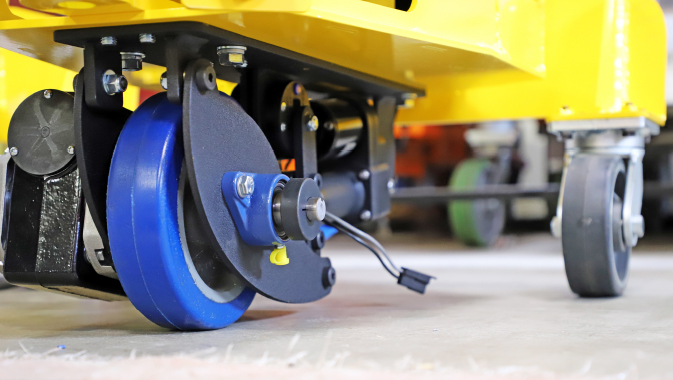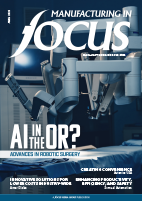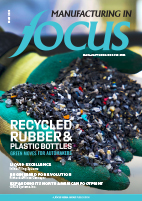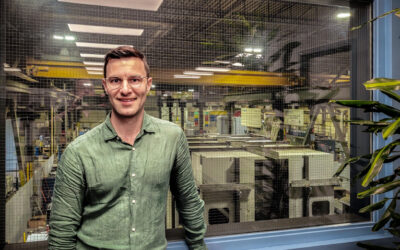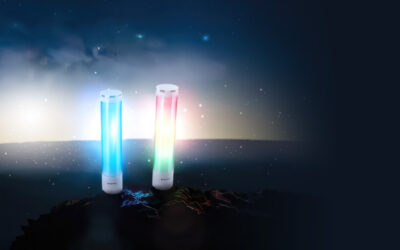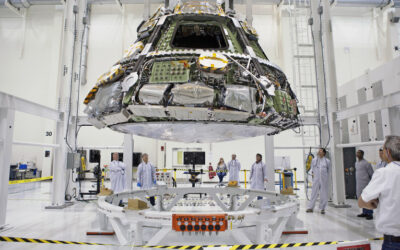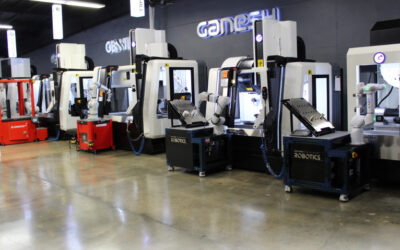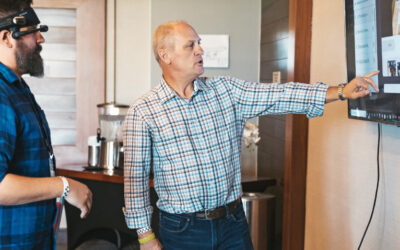For some, bringing products, targets and goals to a specific industry can offer a fast track to success. However, at companies like Caster Concepts, a manufacturer of casters and wheels for multiple industries, flexibility becomes paramount. The company is based in Albion, Michigan and has given itself the unenviable task of being the go-to manufacturer for any other manufacturer that needs casters.
~
Operations and New Product Development Manager Doug Backinger explains the niche into which the company fits. “We manufacture industrial casters and wheels and primarily serve other manufacturers. We are the ones that are making products that help them to move parts around their facilities. In a nutshell, we help other manufacturers get their stuff built.” In this role, Backinger points out that that there is no fixed model or service that Caster Concepts follows, and that adaptability is key.
“We built our production system for flexibility. We can tailor designs specific to our customers’ needs. We have a catalogue of standard products, but a large portion of our business is special or custom products that are designed specifically for that customer. For example, if we had a customer that was trying to retrofit a dolly or cart and they were faced with certain height or mounting restrictions, we can help them with that. Or, maybe they are trying to achieve the easiest rolling dolly that’s possible. We can come up with designs that will work around their restrictions,” Backinger says.
Caster Concepts is unique as it works in a manner which would not suit other companies. “This is because our demand is incredibly variable,” he explains. “Trying to keep a finished goods inventory doesn’t really work for us, so we have to buffer with capacity that is also flexible, where we can make a wide variety of products with the same set of machinery.”
The company is in an industry faced, like many others, with enormous challenges such as international competitors. The influx of large-order, cheap parts means that Caster Concepts has to offer something different to be competitive.
“The material handling industry, just like the caster industry, is very large, but a lot of the products that are sold within these industries are very light duty,” explains Backinger. “These tend to be mostly imported products, so we specialize more in the medium- to heavy- or extra-heavy-duty applications. The light-duty products have much lower margins, business-wise. When you are dealing with import products that get shipped in by the containerful, it is hard to compete against that. The lightest capacity caster we make would be in the five-hundred-pound range. We really specialize in 1,500 pounds and up to over 100,000 pounds.”
The company is pushing design to its limits in search of innovative products. As the need has grown to move bigger objects further and faster, so too has the need to protect the health and safety of staff.
“There has been a big push, within the last few years, of making carts easier to move so that there is less strain on workers,” says Backinger. “As a result, there has been more focus on worker safety. We need to make sure that we have the most ergonomically superior products, so we are always working on that, trying to come up with new caster rig designs or wheel designs with polyurethane tires that help make pushing a cart easier.”
None of this would be possible without capable staff, and businesses throughout the country recognize a shortage of skilled workers. This positive sign of a healthy business environment across the nation can also, conversely, prove to be a challenge.
“For certain positions, whether it is machining or welding – fabrication in general – the skill level of our employees needs to be quite high. We have tried a wide variety of methods to attract workers. They all seem to work a little bit. We have managed it to the point where we are staffed with a pretty solid workforce, but certainly, if we needed to add five to ten more employees, it would be a struggle.”
Backinger feels that training and education are vital to attracting the highest caliber of employee. “We have tried partnerships with local high schools, local career centers, and we have been pretty fortunate with the area that we are in. Even though there are not a lot of people, there is a lot of focus on manufacturing and a lot of training programs that are close by. So, even if we find somebody that doesn’t necessarily have the skills we need but we believe he or she is the right person for our company, we can send them for training to give them some basic skills up-front, and then we can finish the training in-house.”
Caster Concepts just celebrated something of a milestone as it has been in business for more than thirty years. Backinger sees its longevity as resulting from a continuation of the beliefs set out by the founder, Richard H. Dobbins.
“The company was founded just over thirty years ago,” he says. “I’m not sure if it can be attributed to one single thing. I think it comes down more to just having a plan. We would never be happy with simply staying where we are. We have always looked to improve things, whether that is systems, processes, training, or products.”
Backinger feels that the growth experienced by Caster Concepts has been gradual and, most importantly, spread across the industries it serves. “The growth has come from many areas,” he shares. “There hasn’t ever been a situation where we hit it big in one industry, for example automotive, so that is what we are going to specialize in. Besides automotive, we work in ground support equipment, aerospace, and in heavy-equipment manufacturing. We are very diverse with regard to our customer base. I think that comes from having solid products and always working to improve on them.”
Thankfully for the company, not only does it have a growth plan, it has the skills, goals, and most importantly, the products to get there.
“We have a five-year plan, and our goal is to build a sustainable company that can endure through many generations. We will continue to work our strategy around flexible capacity for short lead times on custom products. Our goal is to go beyond standard by designing and building highly engineered products that solve a variety of material handling challenges.”

